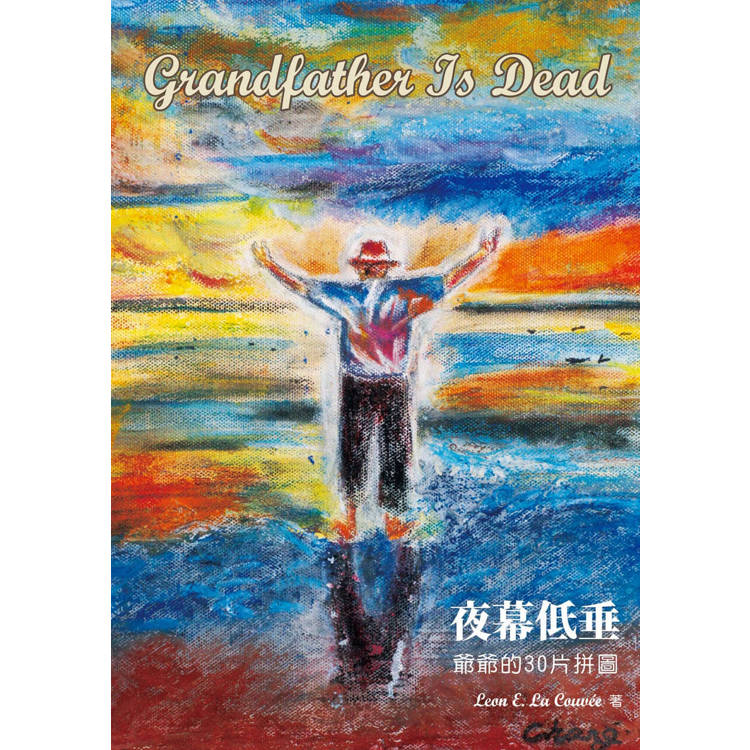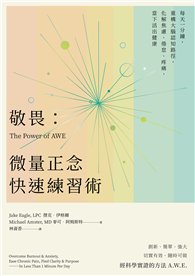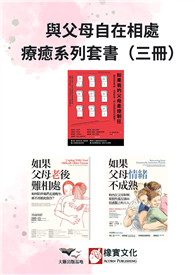章節試閱
◎ Piece Number Eight: A Purposeful Life
Grandfather, I asked, “Is it possible to live a purposeful life?” He replied in the affirmative by nodding his head, “When you realize that you truly know nothing, you can slowly begin your quest for knowledge.”
It is easy as an old man to sit back and pontificate about life, work and freedom. You find yourself very promptly marginalized because the question is succinctly posed: “At sixty-five, what can you possibly know about my life at twenty or twenty-five?” The truth is straightforward: “Nothing!” One of the harshest realizations in life is that you are forced to follow Socrates’ (469-399 BC) dictum: I know that I know nothing!
Why does it matter and why should I care? The quick and concise answer is, it doesn’t -- and you also shouldn’t care about your ignorance. We are, of course, referring to life itself -- normally, my life. There is no intrinsic, God-given creed that obligates the individual to care, about anything for that matter. These are learned phenomena that come along with the realization, at some point, that we are free to do whatever we want to do in this existence. One of the great dilemmas we confront when we face this realization, rather sadly, is that we have already obligated ourselves to certain things -- to a certain lifestyle.
We have by this time placed the chains and shackles on ourselves. We have “a job,” we are in a serious relationship or we are married, we have created another life, we have children, etc. To view it from another perspective, these are the “givens,” that make the fight for me, for my mission in life, worthwhile. This is Socrates speaking at his trial as noted in the Apology: “I do not know, my fellow Athenians, how you were affected by my accusers whom you just heard. But they spoke so persuasively they almost made me forget who I was. Yet they hardly uttered a word of truth.”
“My hearers imagine that I myself possess the wisdom which I find lacking in others. But the truth is, Men of Athens, that only God is wise. And by his oracle he wanted to show us that the wisdom of men is worth little or nothing. It is as if he was telling us, ”The wisest man is the one who, like Socrates, knows that his wisdom is in truth worth nothing.”
What this means fundamentally is that you must be prepared to learn, and conversely to share, at any age. It is this sharing, potentially, that has value for others. You must firstly respect yourself. You may go forward in life and, at times, be “experimental.” You must, must, however, always come back to your image of yourself and you must like this image: “your personal brand.” Secondly, you must be a bit brave and find your calling: what you want to do with your life or in your life. Now we often hear: “But, I don’t know what I want to do.” This is quite alright. Ben Franklin (1705-1790) in his Poor Richard's Almanack intimates that we should make a list of our positive and negative attributes or gifts. Then we must choose one and focus on it. “I am good at playing the cello and I also like to write.” If your attempt to be successful by securing a position in a major orchestra does not occur after many years, then perhaps it is time to write your first novel. The key is to not give up trying to find your niche. Thirdly, you must remember that life is exciting.
It is not given to you to plod blindly forward, stumbling through a meaningless life, focusing on saving money, thus retiring unto death: this is not your reality. Finally, and most importantly – have some fun! Existence is meant to be mostly pleasurable: the failures, overcome with a desire to succeed.
The great mystic, philosopher and yogi, Sadhguru (b. 1957) has a thought: “To be on the spiritual path means that you have not made a conclusion about anything you are seeking. To be a seeker means you want to know. One can seek only when one does not know. If he assumes that the end is God or mukti or this or that, there is no seeking. Unfortunately, most seekers in the world have made their conclusion about what is the end, and then they seek. That means you are seeking something that you have created. If you want to seek what you have created, there is no need to seek. It is very simple. Just create whatever you want. This kind of false spiritual seeking is going on in the world on a massive scale. It has become such a huge affair that if you as much as utter a word against it, it amounts to blasphemy or atheism. No true seeking can happen if one assumes what is at the other end. Only when one realizes he or she does not know, is seeking genuine. It then becomes possible to take the next step and see what is happening with oneself.”
What the eminent yogi is saying is that you should not predetermine your life plan. Remain open to all possibilities. Your life is truly a miracle and will not be decided until its physical end. This is not just fallacious encouragement -- it is the truth. All human beings will experience pain, loss and suffering in their existence. This is necessary to broaden your wisdom and understanding.
◎ 第八片拼圖:有意義的人生
我曾問爺爺:「人生可能過得有意義嗎?」他點頭答道:「當你知道自己其實一無所知時,你就能慢慢踏上求知的旅程。」
身為一個老人,以一個旁觀者的身分自以為是地發表對於人生、工作和自由的看法是很容易的,但是這樣很快就不被別人放在眼裡。原因很簡單,年輕人會認為:「六十五歲的人怎麼有辦法了解二十或二十五歲年輕人的人生呢?」確實是這樣沒錯!人生最殘酷的事就是,我們都不得不承認蘇格拉底(469-399BC)的格言是對的:我知道自己一無所知!
為什麼過一個有意義的人生很重要?為什麼我要關心這件事?簡單明暸的答案是:人生有沒有意義都無所謂,而你也用不著為自己的無知煩惱。當然,我們這裡談的是「自己」的人生。同樣的,上帝也沒有規定人們要關注這件事。追求有意義的人生是我們後天習得的行為。在人生的某個時間點,我們了解到我們可以自由選擇想做的事,我們才開始有了這樣的追求。不幸的是,當我們了解到這點時,我們遇到的困境卻是,我們已經將自己限制在某種特定的生活方式中了。
我們早已用鎖鏈和腳鐐將自己給束縛住。我們有了工作,有了穩定交往對象或是已經結婚,並且有了自己的家庭,有了小孩等等。或許從另一個角度來看,以上這些「無法改變的事情」能使我的人生追求更有意義和價值。然而,在《蘇格拉底的申辯》一書中,蘇格拉底於受審判時曾說:「雅典的市民啊,我不知道剛剛各位在聽到別人對我的指控時受到什麼樣的影響,但他們是如此有說服力,就連我都差點要忘記自己是怎樣的人了。儘管如此,他們說的沒有一句是事實。」
「我的聽眾以為我擁有過人的智慧,但雅典的各位啊,只有神才真的有智慧。我的朋友想透過那位祭司傳達的是:人類的智慧其實一文不值。他的話就像是在告訴我們:『真正有智慧的人,是那些知道自己其實沒有智慧的人,像蘇格拉底這樣。』」
這個故事主要是要告訴我們,不管幾歲,我們隨時都要做好學習新知的準備,也要將所學與人分享,因為你的分享可能對其他人來說是有幫助的。但在這之前,我們先重視自己。在生命旅程中你可以冒險,偶爾會做點瘋狂的「實驗」,然而,你一定一定要回頭看看自己的樣子,並且喜歡這樣的自己,那是你自己的「個人品牌」。再來就是要勇於找到自己人生的目標,決定這一生怎麼過。我們經常會聽到別人說:「但我不知道我想要做什麼?」沒關係,班傑明.富蘭克林(1705-1790)在《窮理察年鑑》這本書中告訴我們應該要列一張清單,寫下我們的優缺點或是我們的天賦,並且選擇一項去專攻。比如:「我很會拉大提琴也很喜歡寫作。」如果你試圖進入一個知名管弦樂團,但經過多年的努力之後仍沒有結果,那麼或許你該開始寫你的第一本小說了。關鍵在於不要放棄尋找適合自己做的事。第三,要謹記這句話——人生是很精彩的。許多人會埋頭苦幹、瞎忙過一生,一心一意只想著存錢、想著退休,最後老去死亡,但人生不該是這樣過的。最重要的是:好好享受人生吧!活著該是一件快樂的事,而面對失敗時,就以對成功的渴望作為驅動力來克服吧!
身兼神祕哲學家和瑜伽大師的薩古魯(1957-)曾說過:「靈性的探索並不會預設自己要追尋什麼。會展開這趟探索之旅,表示你想要尋求解答,而探索的前提是:你的心中並沒有預設的答案。如果你已經認定生命最終的答案就是上帝、解脫等,那這就不是探索了。可惜的是,世上大部分的人都是帶著答案在探索,這其實只是在探索自己所創造出來的東西罷了。如果你想要追尋的就是自己所創造出來的答案,那就沒必要追尋,只要自己創造就好了。偏偏這種錯誤的靈性探索在這世上非常普遍,普及到只要你發出一點不同的聲音就等同是在褻瀆上帝或是會被歸類成無神論者。若已有預設最終的答案,那就不會是真正的靈性探索之旅。只有在了解到自己一無所知時,人才有可能真正踏上追尋之旅,也才能夠採取下一步,真實地體驗這趟探索自我的旅程。」
薩古魯要表達的是:我們不該事先決定好我們人生的解答,而是應該以開放的心來面對各種可能的答案。我們的生命本身就是個奇蹟,只要生命還沒到盡頭,人生的解答就沒有定數。這番話不只是空泛的鼓勵而已,是千真萬確的事實。所有人的人生都會經歷痛苦、失去和苦難,但這卻是增長智慧與加深人生體悟的必經之路。
以上內容節錄自《Grandfather Is Dead 夜幕低垂:爺爺的30片拼圖》Leon E. Couvée◎著.白象文化出版
更多精彩內容請見
http://www.pressstore.com.tw/freereading/9786263643376.pdf
◎ Piece Number Eight: A Purposeful Life
Grandfather, I asked, “Is it possible to live a purposeful life?” He replied in the affirmative by nodding his head, “When you realize that you truly know nothing, you can slowly begin your quest for knowledge.”
It is easy as an old man to sit back and pontificate about life, work and freedom. You find yourself very promptly marginalized because the question is succinctly posed: “At sixty-five, what can you possibly know about my life at twenty...
作者序
這本書是一次非凡的發現之旅。我如何獲得個人自由並取得對人生拼圖的理解?爺爺給了我們這些工具--用30件拼圖建構成一個理念--一項發現自我巨大潛能的不朽事業。真正的個人自由不是透過外在的成就來實現,只有當我決定這麼做時,我才真正獲致寧靜。除非我認為我的生命是有價值的並為公共利益做出貢獻,否則世上再多的成功也不會給我帶來滿足感。每一個拼圖都讓我更接近與宇宙的和諧並理解我是誰、我的天賦以及我必須為我的人生做些什麼?遺憾的是,爺爺不能再提供他的明智忠告,他已經進入了另一個時空。我將獨自一人將這些拼圖拼湊成一個全面而有效的人生計劃。但是,我是勇敢的,我知道這是可以做到的。通過解開人生的謎題,我感到自由解放,並且能夠繼續為未竟的旅程而奮鬥。
這本書是一次非凡的發現之旅。我如何獲得個人自由並取得對人生拼圖的理解?爺爺給了我們這些工具--用30件拼圖建構成一個理念--一項發現自我巨大潛能的不朽事業。真正的個人自由不是透過外在的成就來實現,只有當我決定這麼做時,我才真正獲致寧靜。除非我認為我的生命是有價值的並為公共利益做出貢獻,否則世上再多的成功也不會給我帶來滿足感。每一個拼圖都讓我更接近與宇宙的和諧並理解我是誰、我的天賦以及我必須為我的人生做些什麼?遺憾的是,爺爺不能再提供他的明智忠告,他已經進入了另一個時空。我將獨自一人將這些拼圖拼湊成一個...
目錄
Preface 推薦序
From the Principal Embracing Age and Wisdom 校長的話
Introduction 簡介
Synopsis 概要
Piece Number One: Age
第一片拼圖:歲月
Piece Number Two: Gratitude
第二片拼圖:感恩
Piece Number Three: Faith and Hope
第三片拼圖:信仰與希望
Piece Number Four: Heart
第四片拼圖:盡情生活
Piece Number Five: Change the World
第五片拼圖:改變世界
Piece Number Six: The Struggle
第六片拼圖:努力
Piece Number Seven: Real Success
第七片拼圖:真正的成功
Piece Number Eight: A Purposeful Life
第八片拼圖:有意義的人生
Piece Number Nine: Memories
第九片拼圖:回憶
Piece Number Ten: True Happiness
第十片拼圖:真實的快樂
Piece Number Eleven: Fear
第十一片拼圖:恐懼
Piece Number Twelve: Self-Greatness
第十二片拼圖:傑出
Piece Number Thirteen: Work
第十三片拼圖:工作
Piece Number Fourteen: Self-Image
第十四片拼圖:自我形象
Piece Number Fifteen: Perception
第十五片拼圖: 見解
Piece Number Sixteen: Awakening
第十六片拼圖:覺醒
Piece Number Seventeen: Time Waits for No Man
第十七片拼圖:時間不等人的
Piece Number Eighteen: Be Wise
第十八片拼圖:當一個有智慧的人
Piece Nineteen: Good Advice
第十九片拼圖:好的建議
Piece Number Twenty: My Temple
第二十片拼圖:我的神殿
Piece Number Twenty-one: Health
第二十一片拼圖:健康
Piece Number Twenty-Two: Luck
第二十二片拼圖:運氣
Piece Number Twenty-Three: Grandeur
第二十三片拼圖:卓越的人生
Piece Number Twenty-Four: Glee
第二十四片拼圖:歡樂
Piece Number Twenty-Five: Focus
第二十五片拼圖:專注
Piece Number Twenty Six: Emotion
第二十六片拼圖:情緒
Piece Number Twenty-Seven: Truth
第二十七片拼圖:真相
Piece Number Twenty-Eight: Peace
第二十八片拼圖:平靜
Piece Number Twenty-Nine: Time
第二十九片拼圖:時間
Piece Number Thirty: My Perfect Day
第三十片拼圖:完美的一天
Conclusion 結論
Appreciation 致謝
Notes 註解
Preface 推薦序
From the Principal Embracing Age and Wisdom 校長的話
Introduction 簡介
Synopsis 概要
Piece Number One: Age
第一片拼圖:歲月
Piece Number Two: Gratitude
第二片拼圖:感恩
Piece Number Three: Faith and Hope
第三片拼圖:信仰與希望
Piece Number Four: Heart
第四片拼圖:盡情生活
Piece Number Five: Change the World
第五片拼圖:改變世界
Piece Number Six: The Struggle
第六片拼圖:努力
Piece Number Seven: Real Success
第七片拼圖:真正的成功
Piece Number Eight: ...








